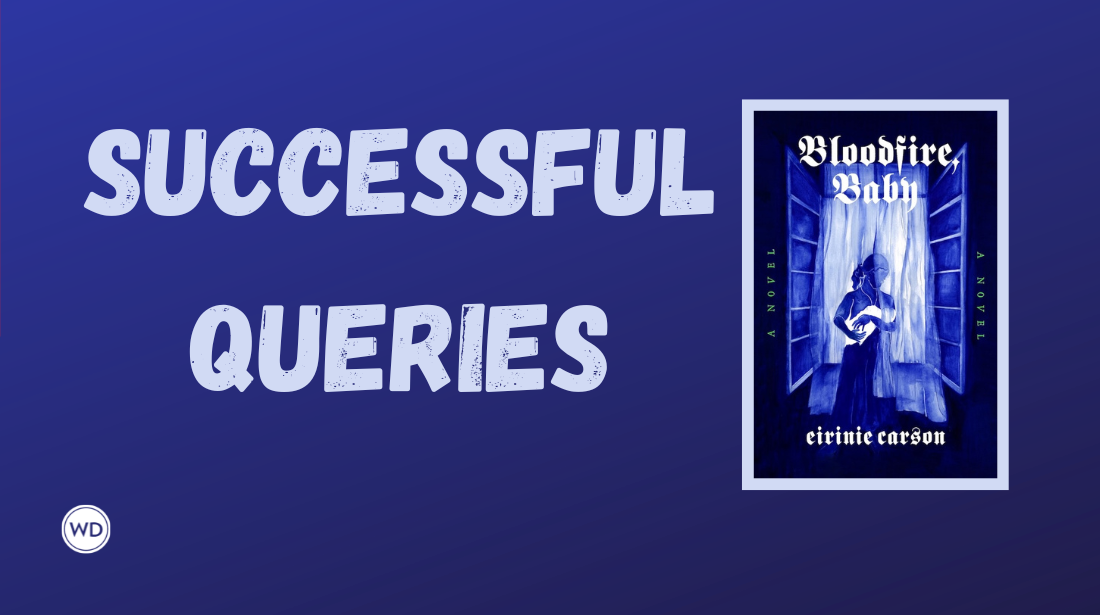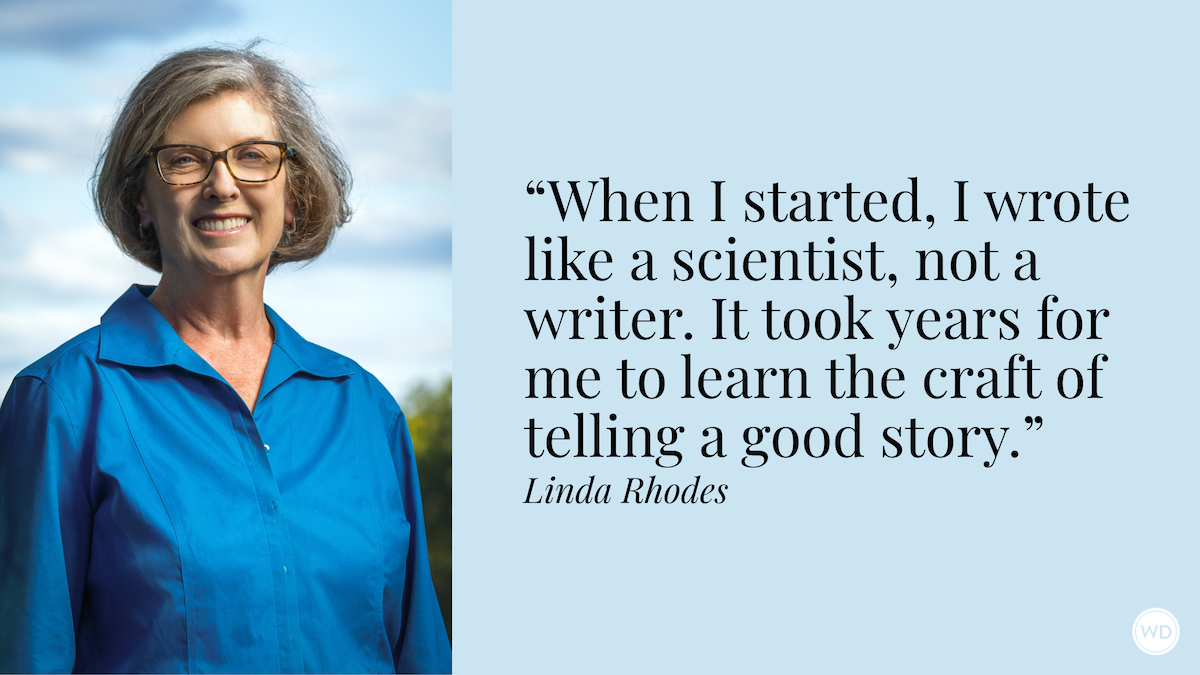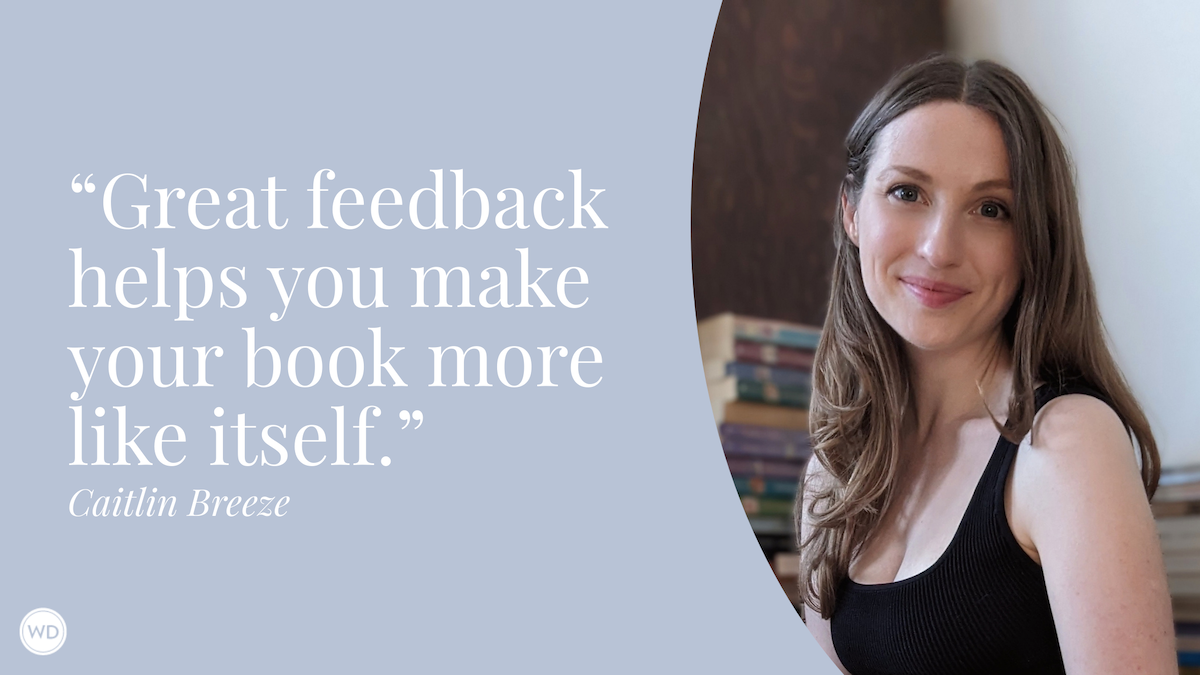The Art of the Multi-Author Event
WD Editor-at-Large Jessica Strawser has tips for how to decide when a multi-author event is the best strategy for you—and how to make the most of sharing the stage in this article from the March/April 2021 issue of Writer’s Digest.
Maybe you’re booking a tour event—virtually or, as public health permits, in person—via a bookstore, library, or other venue to promote your book, and are wondering if two authors are better than one.
Maybe you’re struggling to prepare a talk about your book that smoothly touches on all the aspects you want to discuss, or feeling awkward in a virtual format where you can’t see and hear your audience.
Maybe you’ve been invited to join another author on a book festival stage as an “in conversation” host and aren’t sure whether to accept.
Or maybe you—being a good literary citizen—are simply eying event calendars and wondering which would be most enjoyable to attend.
In all these scenarios, multi-author events are becoming more and more common. Even before COVID-19 changed the landscape of book promotion, many bookshops, fairs, luncheons, and libraries favored an interview format over formal speeches and readings. In 2019 alone, I had the privilege of joining authors ranging from superstar James Patterson to award-winner Laurie Halse Anderson at public appearances “in conversation.”
And once the pandemic turned book tours virtual, this format became even more popular. The reasons are practical—when promoting events online, multiple voices spreading the word to their respective followers are more effective than one—but may be emotional, too.
In a time when social distancing has left writers and readers alike craving personal connections, conversations between fellow authors deliver exactly that. Listening to two or more authors discuss their craft together is much more intimate than settling in for a presentation.
“There are some authors I’ve done multiple events with over the years just because we travel in the same circles and generally write the same kinds of books,” says David Bell, who often preferred this format even before his most recent thriller, The Request, released June 30 with the pandemic in full swing. “Because we know each other well and connect well, it allows us to freely discuss our work and the writing life in a way that—I hope—feels natural and conversational for the audience. It’s fun for us, and I hope and believe that fun translates to the audience as well.”
In the virtual space, fun matters more than ever. When I was invited last July to appear on Big Stone Gap author Adriana Trigiani’s popular Facebook Live series, I was so blown away by her good-humored rapport with the hundreds of apparent regulars in the livestream audience (not to mention her support of independent booksellers) that when my next novel releases on March 23, I’ll be celebrating my launch evening not at a single store, but as a returning guest on Adriana Ink.
Here’s what I’ve learned about when multi-author events are a smart strategy, and how to make yours a success—for all involved.
Know the difference between a joint event and an “in conversation” event.
If you’re asked to host a fellow author “in conversation,” you’ll essentially be interviewing them. It’s an honor to be asked, but also a time commitment involving preparation, so be sure you’re up to the task before you say yes. You’ll be given their latest book to read in advance and will steer the conversation to highlight their new title as well as career achievements and body of work. If they’re gracious or if the conversation lends itself to it, they may volley questions back to invite your insights—but not always.
In asking a colleague to host you in conversation, the above is true in reverse. (For bonus points, heed the “if they’re gracious …” part.)
“I love the conversation format,” says Rea Frey, whose traditionally planned August tour for her domestic suspense Until I Find You turned virtual with help from conversation hosts Hank Phillippi Ryan and R.J. Jacobs. “It’s always so fun to dive deep, get involved in a conversation, and go deeper than you would when it’s just you and an audience. While I adore in-person events, it’s been amazing to network with different authors virtually that I’d never get to meet in person.”
If you’re planning a true joint event where two or more authors are featured (rather than one hosting another), you’ll share the spotlight equally—more like a panel, even if there’s no moderator. It’s important that the event be marketed that way and that you do your best to pass the mic when the big day comes.
Decide if and when two is really better than one.
Online, the answer might be an easy yes. The caveat: You must be comfortable relinquishing control of the conversation’s trajectory to a moderator—though some authors welcome that shift.
“I like the diversity of ideas in multi-author events, and there’s less of a pressure to carry out the conversation,” says Once Upon a Sunset author Tif Marcelo, an active member of the romance writers community who says she prefers multi-author events both online and off. “It makes it so that authors can learn from one another as well.”
New York Times bestseller Cathy Marie Buchanan typically delivered talks about her historical subject matter alone on in-person tours, most notably for The Painted Girls. But when planning the virtual tour for October’s release of Daughter of Black Lake, she and her team at Riverhead Books opted for a 100 percent “in conversation” event lineup for multiple reasons.
“It’s easier for virtual events to come off as flat than live events, and we hoped the spontaneity that comes with an interview would help ensure a lively event,” Buchanan explains. “Because each interview was led by a different author, each event was unique, which was appreciated by readers who attended multiple events. Christina Baker Kline and I discussed some of the unique research challenges mandated by the settings of our recent novels. Pam Jenoff and I compared our publishers’ involvement in selecting the historical moments we bring to life in our work. Therese Anne Fowler and I spoke about our writing processes. Lastly, [we] saw the potential of including a second author to attract readers unfamiliar with my work to the event.”
As Buchanan alludes, No. 1 New York Times bestseller Christina Baker Kline found herself in the midst of a 2020 crash course in going virtual as both host and subject. “I did about a dozen events with other authors before my own novel, The Exiles, was published in late August, and by that point, I’d figured out what worked and what didn’t,” Kline says. “I decided I wanted to do events with an eclectic group of writers I like and admire, from mega-bestselling commercial authors to literary superstars. I knew they’d be a draw for my audience and that we’d have lots to talk about. And we did.”
As public health allows in-person events to resume, ask yourself: Can you draw a crowd at your hometown bookstore? What about at the next town over? Does your book—or your style—lend itself to having a partner steer the discussion, or do you already know just what to say?
For book launches, a strategic tour might go fine solo. “Pre-pandemic, I always threw the first launch event on my own because it was essentially a big party to apologize to all the friends I’d been ignoring for the past two years while working on a book!” says Janie Chang, author of The Library of Legends.
If, however, you’re releasing a paperback edition of a hardcover you’ve already launched, or are looking to speak in a town where you don’t personally know many people to fill seats, teaming up with another author (whether they’re local and can spread the word, or are also touring and can double the interest) can make good sense.
Beyond the “new release” phase, dual author events can mean split book sales, where some attendees intend to buy only one book that day and have to decide which. But multiple authors can also draw bigger crowds, which can make for a more successful event overall.
Now available: Jessica Strawser's newest book, A Million Reasons Why
[WD uses affiliate links.]
Plan the discussion.
For “in conversation” events, you may receive guidelines for what the marquis author wants to discuss. If you don’t, whether you run questions by them beforehand and/or ask if there’s anything they want you to include (or avoid) is at your discretion. Treat others as you’d like to be treated.
If the marquis is you, give as much direction as you like—though take care not to micromanage. You wouldn’t ask this host if you didn’t think them capable, after all.
For a joint event, chances are you’re teaming up with authors who you already know or share something in common with—an audience, subject matter, setting, or personal connection. “I think it’s important to create an event or in-conversation around a topic,” Frey says, “capitalizing on book launch, marketing, or even genre-specific events that really cater to a purpose.”
Chang agrees. “If not the same genre, then a similar theme, such as mother-daughter conflicts or sacrifice or love in a time of war.”
Touch base beforehand and trade expectations for how you’d like the event to go. It’s just as important to voice your own desires as it is to listen to your partners.
Always be sure books are readily available.
In person, you don’t want readers walking away empty-handed. It’s appropriate and reasonable for a conversation partner to be mentioned in marketing materials, and for both authors’ books to be amply stocked. When I hosted James Patterson at a large Cincinnati theater, I fully expected my book displays on the sales table to be dwarfed by his, but I did still have a presence there, which is as it should be for you.
Virtually, it will be up to you and the event host to decide whether to require a purchase to attend. Consider pros and cons: broader exposure versus a smaller amount of guaranteed sales. Even when a purchase is not required, you can work with local booksellers to make signed copies available for online orders or utilize bookplates. When The Buckeye Book Fair turned virtual in November, organizers mailed all participating authors bookplates to sign and return so the fair could fulfill all orders with signed copies.
Especially when going virtual, think beyond the bookstore when planning a tour.
“Partnering with a host able to help attract an audience goes a long way,” Buchanan says. “I think there are likely opportunities to partner with museums, galleries, or clubs (e.g., Canadian Federation of University Women) with large audiences that have taken their in-person events online.”
Set realistic expectations.
If you’re hosting an “in conversation,” chances are you’ll fade into the background at some point while the headliner greets lines of fans. You’ll be disappointed if you go in expecting all of A-List Author’s fans to buy your books too.
Focus on other perks—such as the opportunity to spend an hour watching someone you admire in action. At least a few attendees are bound to say nice things about your moderating and grab a copy for their shelves. And there’s always a chance that readers will remember your name, find your book at the library, and become a fan later.
“A reader may come to hear or see one author and then end up trying out the books by all the other authors,” Bell says. “I think that happens a lot.”
Share responsibility for promo.
The moment you agree to join an author’s event calendar, you’re agreeing to join them in social media posts, newsletter sends, and anything else you can do to drive people to attend. Don’t think your partner won’t notice if you drop the ball.
Does one of you have better local reach, but the other is more of a whiz at creating promotional graphics? Duties don’t have to be equal, but they should be divided fairly.
Be gracious.
Needless to say, a joint event is not the time to get into a passionate argument about pantsing versus plotting. Unless your books are about opinion-based topics and people are coming for the debate, throw each other softballs instead of fastballs, and be genuine.
The publishing world is smaller than you might think, and authors (and publicists and booksellers) talk. One successful multi-author event is a great way to get invitations to do more. And in that way, a shared stage (or screen) is a beautiful thing indeed. WD
Jessica Strawser is editor-at-large for Writer's Digest and former editor-in-chief. She's also the author of several novels, including Not That I Could Tell and Almost Missed You.








